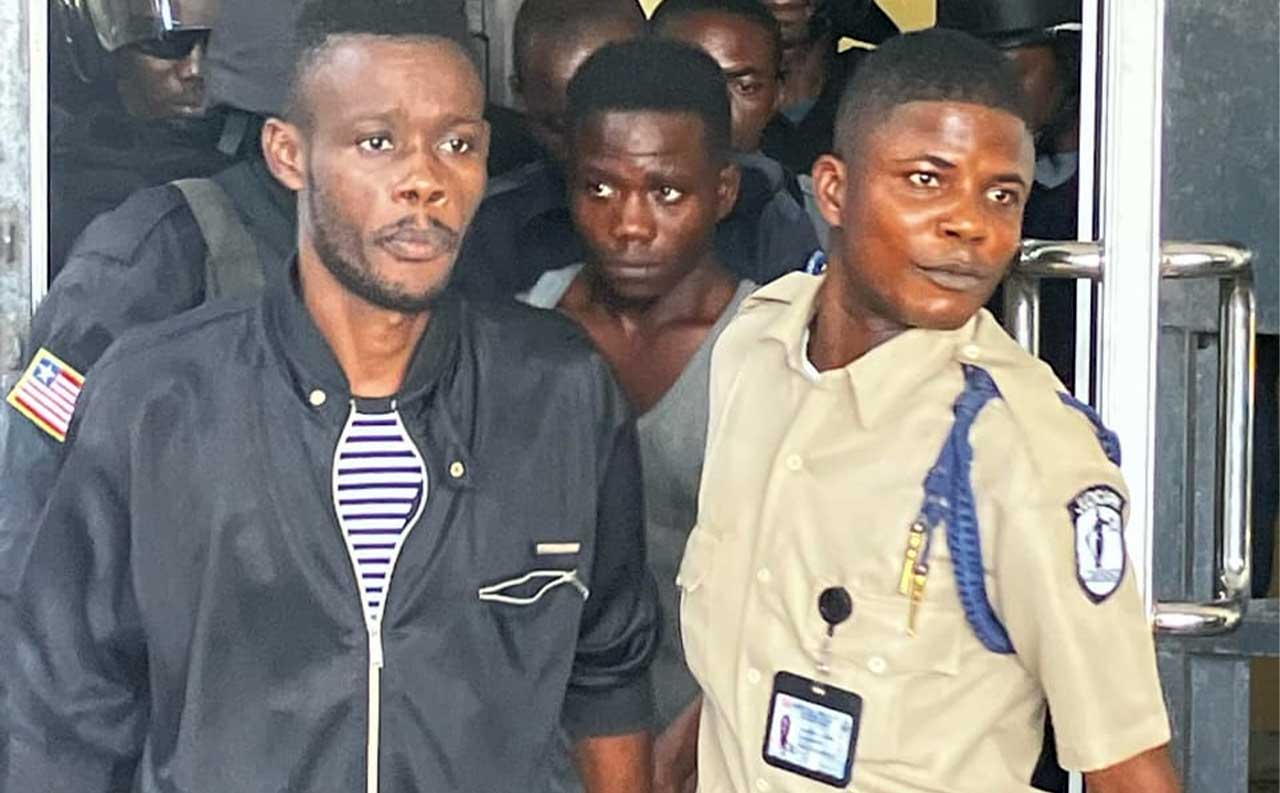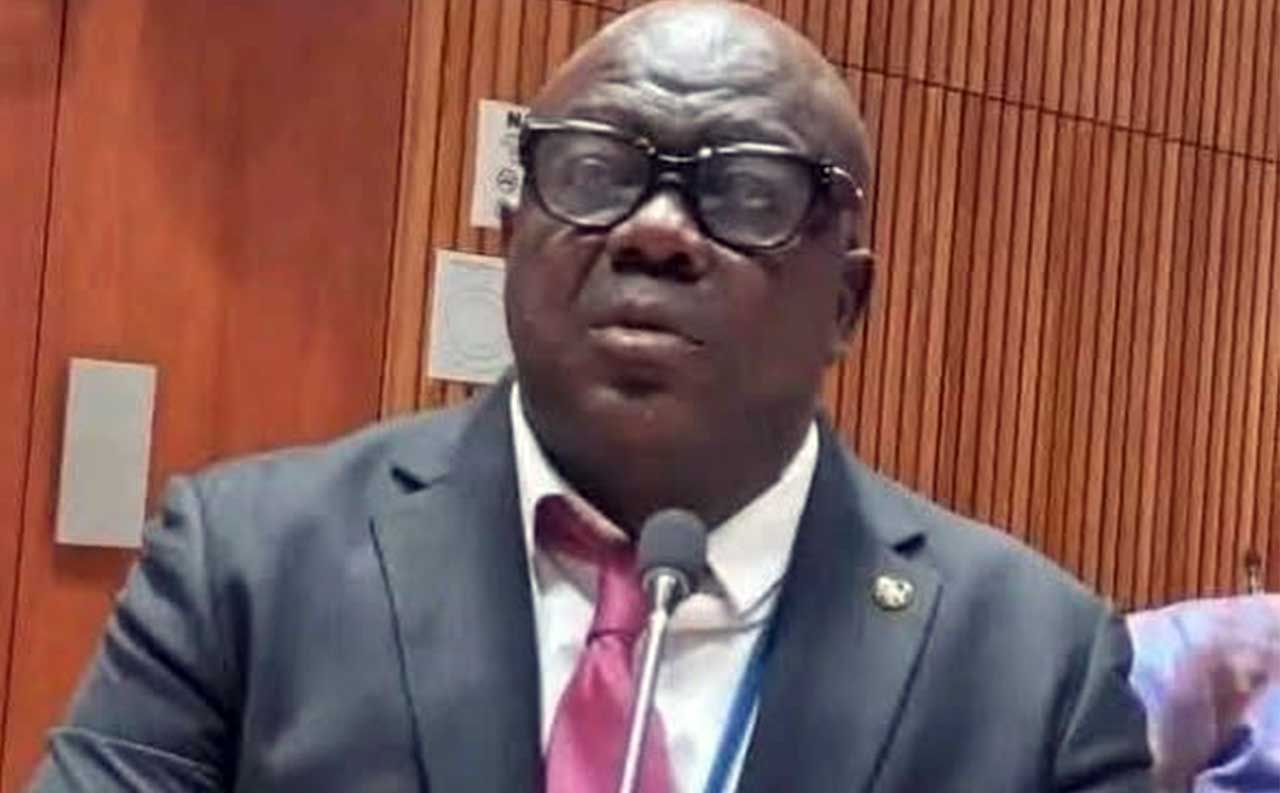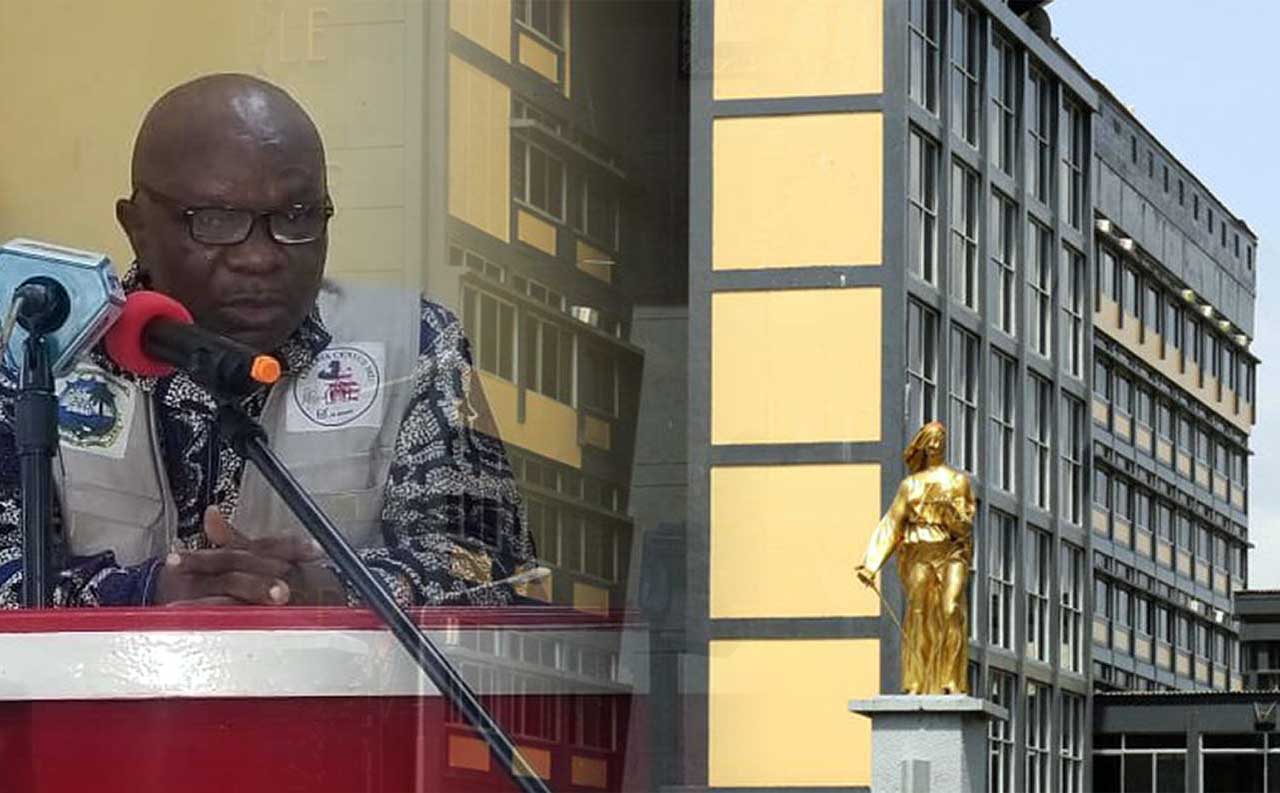In continuation of the ongoing preliminary investigation in the Capitol Building arson attack by Magistrate L. Ben Barco of the Monrovia City Court at the Temple of Justice in Monrovia, prosecution third witness Peter Johnson of the National Service Agency (NSA) failed to produce WhatsApp message evidence linking the suspects to the commission the crime.
The witness had just played two alleged recordings from defendant Thomas Etheridge’s phone through a mini speaker, but when instructed later on by the Judge to read the What’sApp messages linking defendants Etheridge and Eric Susay to the burning of the Capitol Building, Johnson told the judge that the message had disappeared because the phone is set on a default timer.
Defendants Etheridge and Susay were charged by the Liberia National Police with multiple offenses ranging from Arson, Release of Destructive Forces, Reckless Burning or Exploding, Criminal Mischief, Recklessly Endangering Another Person, Criminal Attempt to Commit Murder, Theft of Property, Aggravated Assault among others.
Defense lawyer Cllr. M. Wilkins Wright quizzed the witness “how did the messages disappear when the phone had been with the police containing these alleged information and investigators were bringing the very phone to court since December 18, 2024.”
Cllr Wilkins argued that the default timer is set for 24 hours and wondered how investigators wouldn’t have known the messages were no longer there when the phone had been in their possession all along.
Witness Johnson answered by saying, “Ask anyone who has an internet phone. There is this default timer program that people set on their phones for messages to disappear within a certain time limit and this is what happened. However, we printed a hard copy of the conversations from the phone which we brought to court. However, Cllr. Wright objected to the hard copies printed out from Defendant Etheridge’s phone on grounds that it wasn’t the best evidence but rather the phone.
The Judge requested both parties to have two minutes arguments on the objection beginning with prosecution which cited Section 25.6 title two of the Civil Procedure law which states: Copies of writings. A copy of writing is not admissible as evidence unless the original is proved to be lost or destroyed or to be in the possession of the opposite party who has received notice to produce it; or unless it is a copy of some public record or document proof as provided in Section 25.10 of the Chapter.
Cllr. Wright, on the other hand, relied on the best evidence from the same Section 25.6 of the Civil Procedure Law which states: The best evidence which the case admits of must always be produced; that is, no evidence is sufficient which supposes the existence of better evidence.
But after arguments, Judge Barco overruled defense lawyers Cllrs. Wright, Elisha T.J. Forkeyoh and Jonathan Massaiquoi’s objection and sustained the prosecution’s arguments.
In a related development, the trial was suspended for ten minutes when the phone couldn’t open to play the recordings which prosecution claimed is its evidence that links Defendants Etheridge and Susay to the crime.
Due to the locking of the phone, prosecution requested the court to allow them bring in a technician from the NSA after they earlier said technician Lewis Jayjay was an officer of the Liberia National police instead of the NSA.
But Etheridge’s lawyers were quick to cross-examine him by asking his main place of work, and Jayjay told the court that he’s employed by the NSA as a technician. Based upon his response, Judge Barco fined state lawyers US$100 to be paid in the Judiciary account for deceiving the court.
The witness concluded his testimony on January 31, 2025 with prosecution resting with the production of oral and documentary evidence and submitted its side of the case for arguments. Temporarily, Judge Barco has set Thursday, February 6, 2025 for the final arguments into the trial of the ongoing preliminary hearing of evidence.
By T.Q. Lula Jaurey



